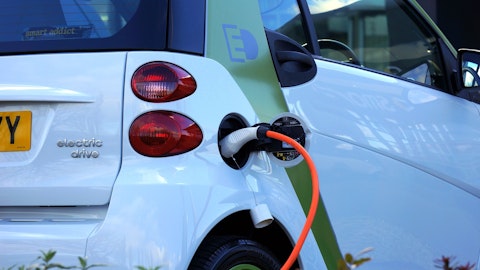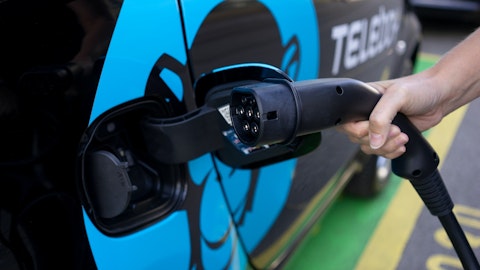Parker Meeks: It’s a great question, Rob. I’d love to talk a lot longer than I probably have right now about it. But briefly, what’s great about the competitive market environment today is there’s a lot of momentum in the industry, right? When you look at in our restructure and our reset with the IRA coming in the US with the advancements in subsidy programs in Germany where you get 80% of the difference between an ice truck and a fuel cell electric truck with about EUR900 million of funding for that program in Germany through 2024. And additionally the regulatory drive in California with the Advanced Clean Fleet rule passing and others coming. You do see customers that are starting to really, you know, move to action against their decarbonization goals.
So what customers are going to do is they will try a lot of different technology. We see customers that they know for their application where it’s heavy loads and long range fuel cell technology is required. And when we engage with them on the 200 kilowatt single system, single stack and what that means for our cost structure and for our economics, the fact that we have a positive margin truck today on the 110 kilowatt platform, that’s a unique statement from what we’ve seen in the public domain in the space, right. And that’s due to our asset-light business model combined with in-house fuel cell technology. So what customers want, we believe, is a fuel cell truck that works with technology that does what it needs to do. 200 kilowatt of fuel cell power is really needed to do 80%, 90% of the route three that a typical back to base and eventually long haul customer executes.
And we’re confident that our 200 kilowatt fuel cell combined with the rest of our powertrain will do that work. And customers want a company and a partner that’s going to be there. And that for us starts with an economically viable truck. So we’re happy to be able to engage with customers on a business model and a cost structure that gives them confidence that we have a model that can scale from that positive margin base. And with a technology that provides all the benefits that they need in the truck application and the ability to partner with them through that journey.
Rob Wertheimer: Thank you. If I can ask just one more, your patent and IP portfolio seems to be shifting more on applied to Hyzon owned as opposed to co-owned. 200 kilowatt largely or entirely going to be as on owned technology? Or is there continuing kind of sharing between the two entities and I’ll stop there and get back in line.
Parker Meeks: Yeah. Great. Thanks so much, Rob. So the IP that Hyzon has exclusive rights to in North America, Europe and Australia-New Zealand is owned by Hyzon. 157 patents that we mentioned before, 120 of which are applied to the end-to-end MEA through fuel cell system spectrum are owned by Hyzon and that is the IP that goes into the 200 kilowatt. We exclusively have rights to that in mobility in the core markets that I mentioned and we continue to progress that IP internally in Hyzon. So for instance, in the MEA area, we’re already advancing IP and things like catalyst design and MEA design, right? So that is where Hyzon is pushing forward, driving that technology forward. We did mention we are very focused on the 200 kilowatt commercialization.
However, the 300 kilowatt single stack fuel cell system is in development roadmap planning and achieving that future tremendous outcome when we’re ready to launch that officially and take that on will be due to additional advancements that we make likely in things like the MEA for increased unit cell productivity.
Rob Wertheimer: Okay. Thank you.
Parker Meeks: Thank you. Thanks so much.
Operator: Our next question comes from Mike Shlisky from D.A. Davidson. Your line is now open. Please go ahead.




